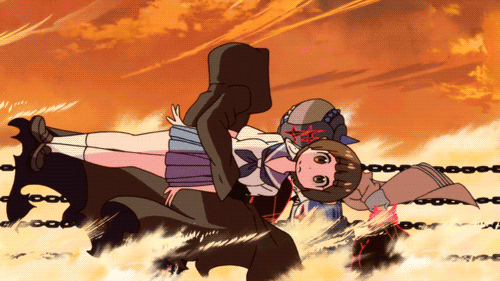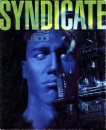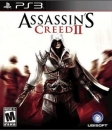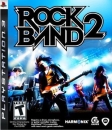Sadly, there are no images at this time. Boo. RPS: What are you guys up to? Jorjani: Well we’re making PC games! That’s what we do, right? And we watch the rest of the industry very closely while we’re doing that. We’ve of course noticed that there’s a trend that’s going on with AAA publishers (and actually the industry as a whole), where some companies are moving towards bigger and bigger AAA games, and others are going more and more casual in the Farmville direction. It definitely feels like a polarisation of where the companies in our industry are going. We feel, though, that the middle road, what Cliff Bleszinski says is the “dead” middle class of gaming, is where we are and have always been – cerebral games for smart gamers – and that is where the PC shines. We can make whatever we want, without restrictions. Anyway, we are now in a place where there are many classical PC games that now have people doing remakes and new takes on them. One of these is Syndicate, which is being developed at Starbreeze. It was the worst kept secret in the Swedish games industry! But now it’s out there, and we were very interested in the reaction to it. Meanwhile we were kicking around a lot of ideas for what kinds of cool games we’d like to see made because nobody else is making them anymore. During this time there was someone over at 2K who said you could not make turn-based games anymore, that the new X-Com had to be a shooter because you can’t do turn-based games anymore. Now, we have tremendous respect for the Starbreeze guys, they make great games, but the announcement sparked a discussion about “what is in a name”. What makes a Syndicate game? The world? The gameplay? The platform? The name? What is it? Cartel was born out of this discussion. Thanks to Magicka and Mount & Blade we are in a very comfortable situation now at Paradox, so we can find something fun and just do it. 2K and the others might need to sell five million copies of their game, and might only be able to do that with a shooter, but we don’t have that worry. We can make games that hearken back to the 90s. That’s what we’re doing here, and it was very easy to find a number of studios in Sweden that were interested in working on this with us, because Sweden has a very strong PC heritage. It’s very early in production, of course, but what is exciting about this kind of development is iterative design – precisely what makes software development great. This is what you can’t do in AAA, we can spend as much time as we like prototyping. Start off quickly making a new game that has everything roughly in place, and then you spend months remaking and prototyping. That’s where we are now. RPS: So you were inspired by Syndicate not actually being remade? Jorjani: You could say that, but Cartel is a little different than that. RPS: Tell us a bit about the setting and the game itself. Jorjani: Well it does take place within a futuristic world, and in that world the cartels do have the power to control entire nations. The cartels are more or less megacorporations, and the main goal of the game, of course, is to ensure that your cartel ends up on top. The “feel” of the game is based in that 1980s concept of the mega-corps: OmniCorp in Robocop, for example. The giant corporation that is all-encompassing and evil, but thinks it is doing humanity a favour. We were a little worried that the name had some drug connotations, but it is still actually about the conflict of big corporations. So yes, you eliminate the other cartels by doing missions, for which you can decide on your strategies. The game is therefore structured in two parts. You have the action mission part and then the part that takes place between missions. On missions you control a squad of elite soldiers and specialists who are controlled RTS-style. There are a lot of different mission types you can send these guys on, such recon and exploration missions, sabotage missions, retrieval missions, assassinations missions, and so on. These are the kinds of things we are currently experimenting with in terms of making the variety of missions interesting. Of course you don’t just send your agents in blind, either. You have kit them out, customise them and their weapons, and it’s all about giving you control of your gang. You are responsible for making sure the teams are suited to their mission. What I should also mention at this point is that although events in the missions will be scripted as part of a campaign, we are also expecting to make the missions themselves dynamic. So if you are sent to assassinate someone he might take his car on one run through, or go to the public transport terminal on another. Our missions will always have parameters that change. A large part of the game will about planning ahead, but also adapting to changes in the mission. You’ll need contingencies. RPS: So how in depth is this between-mission bit? Is it dynamic too, or just a series of missions? Jorjani: It is quite dynamic! You could almost play this through just as a strategy game. It’s definitely a sort of “lean back and think” sort of game where you need to look at the big picture, look at your stats, and trying figure out the next move. The cartels have global operations going on all the time, so you will need to work out where you want to focus your efforts – in Eastern Europe? Or South Africa? You’ll be researching and have technology programs, and you will also have diplomatic relations with both other cartels and nations within the world. You’ll be able to adapt how much you want to play the arcade action bits, and how much you want to be in charge of the events in the in-between parts. You can concentrate on action and leave the scheming to your lieutenants, or you can take charge and skip direct handling of the missions, it’ll be up to you to figure it out. RPS: That sounds a bit “Syndicate: Total War”? RTS element optional vs a strategy map? Jorjani: Well parts of it will be turn-based and other parts are ongoing, but the Total War analogy… I am not sure… kind of, I am not a super big fan of that sort of mix. Sometimes it works, but other times it’s rushing through the motions to get to the next battle. Maybe… Pizza Tycoon? Where you were supposed to be a pizza guy but ended up being more like a mob boss doing this other stuff… uh, but sometimes it made sense to actually bake some pizza? I don’t think this analogy is working out. RPS: Uhuh. Jorjani: The point is that in that game you ended up dealing with much more than you might have been handling, and that’s true for Cartel. There will be a lot of options going, a lot of back and forth between what happens in missions and what happens in planning. There will be internal power-struggles, and you will be able to try and handle that through killing them off with your squad, or handle it through diplomacy and strategic gameplay. That is up to you. And even if you were very focused towards action you could spend a lot of time working on loadouts and equipment. RPS: So when do we get to see more? When will we see Cartel in action? Jorjani: Once we are happy with the formula things could move rather quickly. The game could be ready in 12-18 months, but we need to happy with that formula. And that is what we are working on right now. RPS: Thanks for your time. http://www.rockpapershotgun.com/2011/09/21/paradox-announce-cartel-interview/#more-74965
Paradox are developing a game called Cartel. The timing is interesting, because this is a game of two familiar halves: one real-time squad-based RTS action, the other on a global research and diplomacy map. And it is set in a near-future world of global mega-corporations, or “cartels”, battling for ultimate supremacy. Sound familiar? It should do. This is the antidote to EA’s new Syndicate being an FPS, and Paradox aren’t too shy about it. I talked to Paradox’s Shams Jorjani about what the Swedish publisher is up to, and whether this could be regarded as Syndicate: Total War.
someone had to do it

 @TheVoxelman on twitter
@TheVoxelman on twitter




























